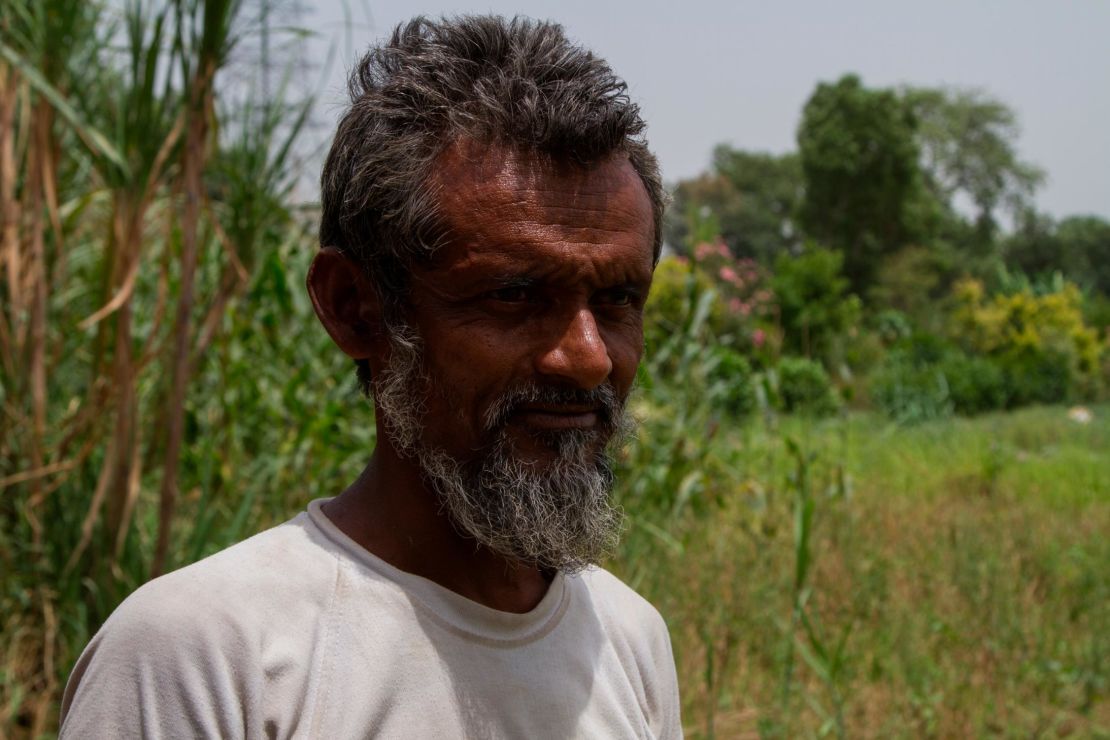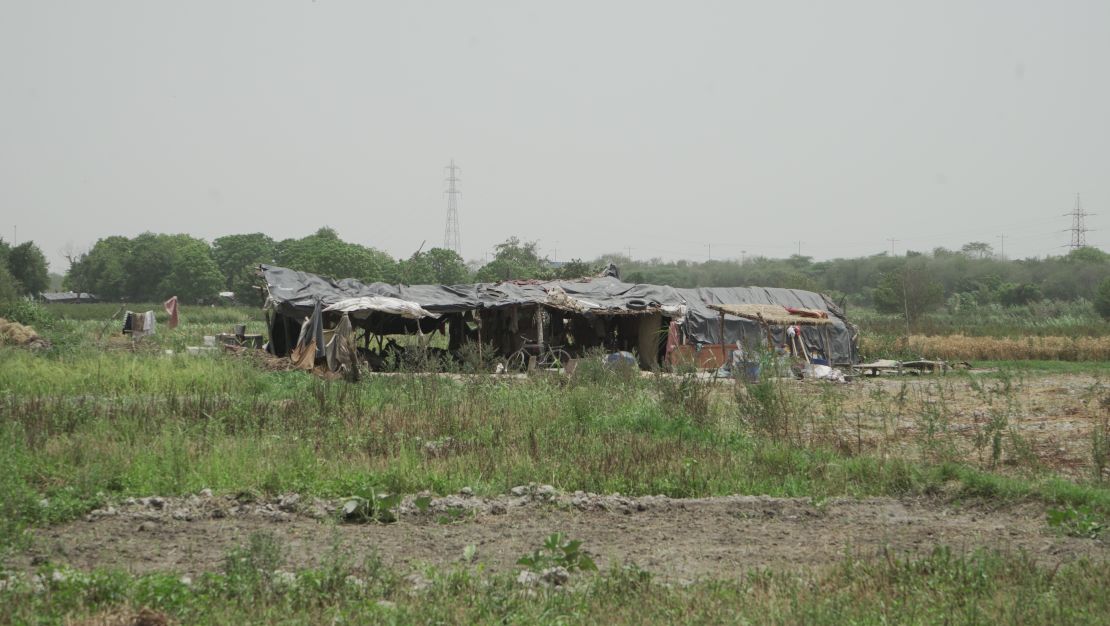Mohammad Mujabir works hard tilling his scrabble patch of a field on the banks of the Yamuna River in New Delhi.
The river is one of India’s most polluted, with untreated sewage and factory waste dumped into its waters as it flows into the capital. But Mujabir, 55, has bigger worries than pollution, which he says might even help fertilize his meagre crops.
The rains are always late, he tells CNN, and it’s hard to simply make ends meet: He feeds his wife and five kids with the produce they grow, and any profits go to the landlord to rent the field.
“There are no savings,” he says. And now he fears he’s been left out of any opportunity to voice his desperation in India’s upcoming general elections.

Voters left out
Mujabir voted in the country’s last general elections in 2014, when Prime Minister Narendra Modi and his Bharatiya Janata Party (BJP) stormed to power, but this time round, he believes his name has been left off the voter list.
Though he has a registration and voter ID card, he said he’s yet to receive his ballot card. Without the card, he will not be allowed to cast his vote with the rest of New Delhi on Sunday, during the sixth and penultimate round of polling.
India’s Election Commission has committed to a “no voter left behind” initiative for the parliamentary elections this year. Polling staff have reportedly gone house to house in villages explaining the process and to residents, many of whom may be illiterate.
But Mujabir says no one has come to visit him. “The party people don’t come here. Nobody gives a damn about us,” he says.
A recent report by election watchdog Missing Voters suggested that some 120 million people – many of them minorities such as Muslims or Dalits – were left out of electoral lists.

Authors of the report said there was a “slow but steady process … through which the minorities are being disenfranchised and politically excluded.”
A spokesperson for India’s Election Commission (ECI) told CNN that it “has given citizens ample notice through its awareness campaigns to ensure that voters have enough time to make sure their names are on the electoral rolls.”
Pledges to help the poor
With 50% of India’s labor force working in agriculture, farmerslike Mujabir make up an important voter bloc. Amid a deepening agrarian crisis caused by depleting water tables, drought, mounting debt and falling wages, they have staged numerous protests in recent years, including in the run-up to this election.
Suicide among farmers has also become a national issue, with more than 200,000 killing themselves since 1995, according to government data collated by Mumbai-based NGO Down to Earth. In 2015, the last year government figures that were made available on farmer suicides, 12,602 killed themselves.
Both the BJP and main opposition Congress Party have pledged in their election manifestos to help the poor and farmers like Mujabir.
Congress leader Rahul Gandhi has promoted a flagship plan to eliminate poverty, called the Nyuntam Aay Yojana or NYAY scheme, which will give Rs. 72,000 ($1,000) a year to the poorest 20% of households. The money will be transferred to the woman in the household, as far as possible, according to Congress.
Meanwhile the BJP has pledged to ease farmers’ burdens by promising to invest almost $360 billion to develop rural areas. The party has said it would double the income of farmers by 2022.
But Mujabir isn’t convinced. He says there are about 1,000 Yumana Kisan or small-scale farmers like himself in the Yamuna River basin and he is not optimistic that they will benefit from political promises.
“No farmer is benefiting around here. Nothing happens. They just talk,” he says.
With reporting from CNN’s Manveena Suri.






